Cooking Fats and Oils: Which to Include and Which to Avoid
Fats and oils are a necessary part of cooking, but using the right ones are down right essential to living a healthy and vital life. Just like rest of what we eat, a good rule of thumb with fats and oils is to always opt for organic and you should avoid overly-processed, highly refined fats and basically anything that your grandmother wouldn’t recognize as traditional food (i.e. basically ALL highly-refined vegetable and seed oils) – but to be frank, there is a lot more to the story! Not only do the types and quality of fats and oils matter – but so does their proper use. Honoring the various molecular structures of the different fats is the best way to insure that you are using them appropriately, without causing damage to the fats and in turn, negative affects on our health.
Here is a quick resource guide including the various uses for each:
AVOID:
- margarine
- hydrogenated or partially hydrogenated oil based “buttery substitutes” and spreads, like Earth Balance, Can’t Believe It’s Not Butter, etc.
- soybean oil
- canola oil (rapeseed oil)
- sunflower oil
- corn oil
- cottonseed oil
- “vegetable” oil
- safflower oil
- peanut oil
- grapeseeed oil
- rice bran oil
- shortening (made from any of these above oils)
These oils are all highly refined, often sourced from genetically modified plants and are extracted using solvents and other chemicals. By the time these inflammation-inducing cooking oils reach your kitchen, before you ever even begin to cook with them it is likely they are already rancid and full of cancer-encouraging free radicals! PLEASE, I beg of you, read the post 4 Reasons to Avoid Vegetable Oils to learn more about why these oils are so bad and why it is gravely important to avoid them!
Additionally, do not be fooled by clever marketing techniques selling you on the “high smoke point” of these oils. This is only relevant information if the fat or oil is stable to begin with, these above oils are often already damaged and/or rancid due to their processing, rendering the high smoke point to be irrelevant, and the heat of your cooking will actually just continue to do further damage.
INCLUDE:
Saturated fats: Fats and oils that are primarily saturated are the most stable and best suited for your high heat cooking, they are not chemically altered with heat nor are they prone to oxidation – so they can be used both in high and medium heats as well as used cold. Saturated fats stay solid at room temperature.
Monounsaturated Fats: Fats and oils that are primarily monounsaturated fats, but that still contain a high level of saturated fats, these are ok for moderate heat cooking and cold uses. They are less heat stable than the saturated fats but are less likely to oxidize than polyunsaturated fats.
Polyunsaturated Fats: Fats and oils that are primarily polyunsaturated fats, can go rancid very easily and they quickly oxidize when heated. They are also highly sensitive to light and air. Cold pressed oils that are unrefined and in their natural state are preferred. Unfortunately the term cold pressed is not regulated with the US and often expeller pressing and other methods use great pressure which in return creates heat and can damage them fast. Without knowing the process in which these oils are pressed it’s best to always avoid expeller pressed oil for that reason. Polyunsaturated oils should never ever be heated, they should be stored with great care, for a short amount of time and consumed in small amounts.
Note: Most cooking fats and oils contain a combination of saturated, mono- and poly-unsaturated fats. When categorizing, the fats/oils are placed in the appropriate group based on their fatty acid composition, meaning the fat type they are most abundant in, percentage wise.
Saturated Fats:
Most Stable Fats. For High-Heat Cooking, Medium-Heat Cooking and Cold Uses:
- Beef or Lamb/Mutton Fat (aka Suet and Tallow) from Pasture Raised Animals
- Unrefined Cocoa Butter
- Unrefined Coconut Oil
- Palm Kernel / Palm Oil*
- Ghee from Grass-fed Cows
* Please note: Palm oil and palm oil products, when not sourced sustainably can contribute to massive deforestation, slave labor and the extinction of various species. The damage from palm oil is immense. There are plenty of responsible companies employing sustainable practices, so it’s always best to research where your palm oil is sourced from, first and make an informed decision from there ensuring that they meet strict social, environmental and technical criteria.
Highly Stable Fats. For Medium-Heat Cooking and Cold Uses:
(while these fats do contain a large amount of saturated fat, these also contain a higher amount of monounsaturated fats than the above fats, so best used in moderate heat vs high heat)
- Lard from Pasture Raised Hogs
- Bacon Grease/Fat from Pasture Raised Hogs
- Schmaltz from Pasture Raised Chickens
- Duck Fat from Pasture Raised Ducks
- Goose Fat from Pasture Raised Geese
- Grass-fed Butter*
*Please Note: Butter by fatty acid profile is definitely more of a saturated fat, however since it does contains milk fat it has a lower smoke point and it is best eaten raw or gently cooked in medium-heat.
Unsaturated Fats:
MUFA = monounsaturated fatty acid
PUFA = polyunsaturated fatty acid
Moderately Stable Fats. MUFAs – For Some Medium-Heat Cooking and Cold Uses:
- Extra virgin olive oil
- Avocado oil
Olive oil has often been thought to be not a great choice when cooking or using heat of any kind, however new research1https://www.thepaleomom.com/olive-oil-redemption-yes-its-a-great-cooking-oil/ shows that due to the high content of antioxidants in unrefined extra virgin olive oil, the oil is protected from damage in the face of heat and other oxidants.
Be sure you are getting a high quality olive oil that comes in a dark glass bottle from a single source producer who is transparent with their production practices (I recommend Terra Delyssa). Still best to limit frying and high-heat cooking and opt instead for more gentle cooking methods, like sautéing.
Like olive oil, avocado oil can also be used for light cooking or cold uses. Best to look for organic, extra virgin, unrefined and cold-pressed.
Very Unstable Fats. PUFAs – For Cold Use ONLY :
- Walnut oil
- Macadamia nut oil
- Pecan oil
- Pumpkin seed oil
- Sesame seed oil
These oils are all very high in omega-6 essential fatty acids, a polyunsaturated fat that can be extensively damaged with heat, so these are best consumed in moderation and never ever heated or cooked with. Best for cold uses only. Use as a finishing oil over cooked veggies or meats, combine with other oils in salad dressings, dips and condiments, etc. Most folks are already consuming a large amount of omega-6 fatty acids (from unhealthy sources) in their diet and likely not enough omega-3s, affecting the very important balance between these two essential fatty acids, so while these fats do and can play a very important role in our health, we certainly don’t want to overdue it – so best to consume very minimally.
PUFAs – Fats and Oils as Supplements
- cold-pressed flax seed oil
- cod liver oil
Flax seed oil is best to be used in very small amounts as occasional omega-3 supplementation or in cold preparation. Best to be mindful of how much you consume and how it is stored, as PUFAs are highly prone to oxidation and damage so it can deteriorate quickly. Best stored in a dark bottle, in the fridge and consumed within a few weeks. Add a teaspoon or two to another oil in salad dressings and consume shortly after mixing.
Cod liver oil is an excellent source of naturally occurring vitamins A & D, and omega-3 fatty acids. It is great for boosting immune health, cognitive and reproductive function, reducing inflammation and more. Again, due to the high levels of fragile PUFAs in fish oils, it is highly susceptible to oxidation and damage, so it’s best to make sure it is minimally processed. As well you want to be source from sustainably managed fisheries, employing responsible practices. Store in the fridge and do not store for long periods of time.
References
| 1. | ↑ | https://www.thepaleomom.com/olive-oil-redemption-yes-its-a-great-cooking-oil/ |
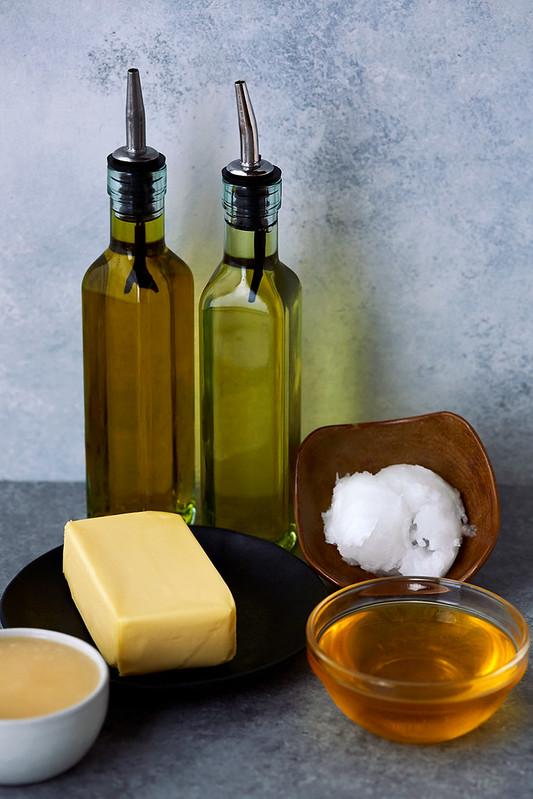

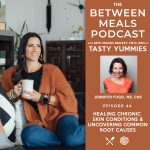
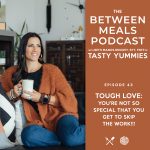
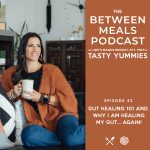

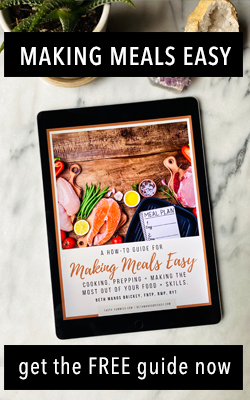
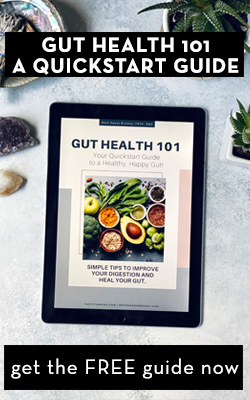
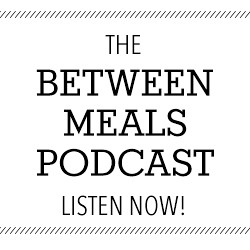



2 Responses
What about almond oil? I thought it was a safe oil for medium high heat cooking.
Sunflower oil in the avoid list? I have been using sunflower oil thinking it does good to health and foods. Had no idea that it contains cancer-encouraging free radicals!
Very informative article 😀